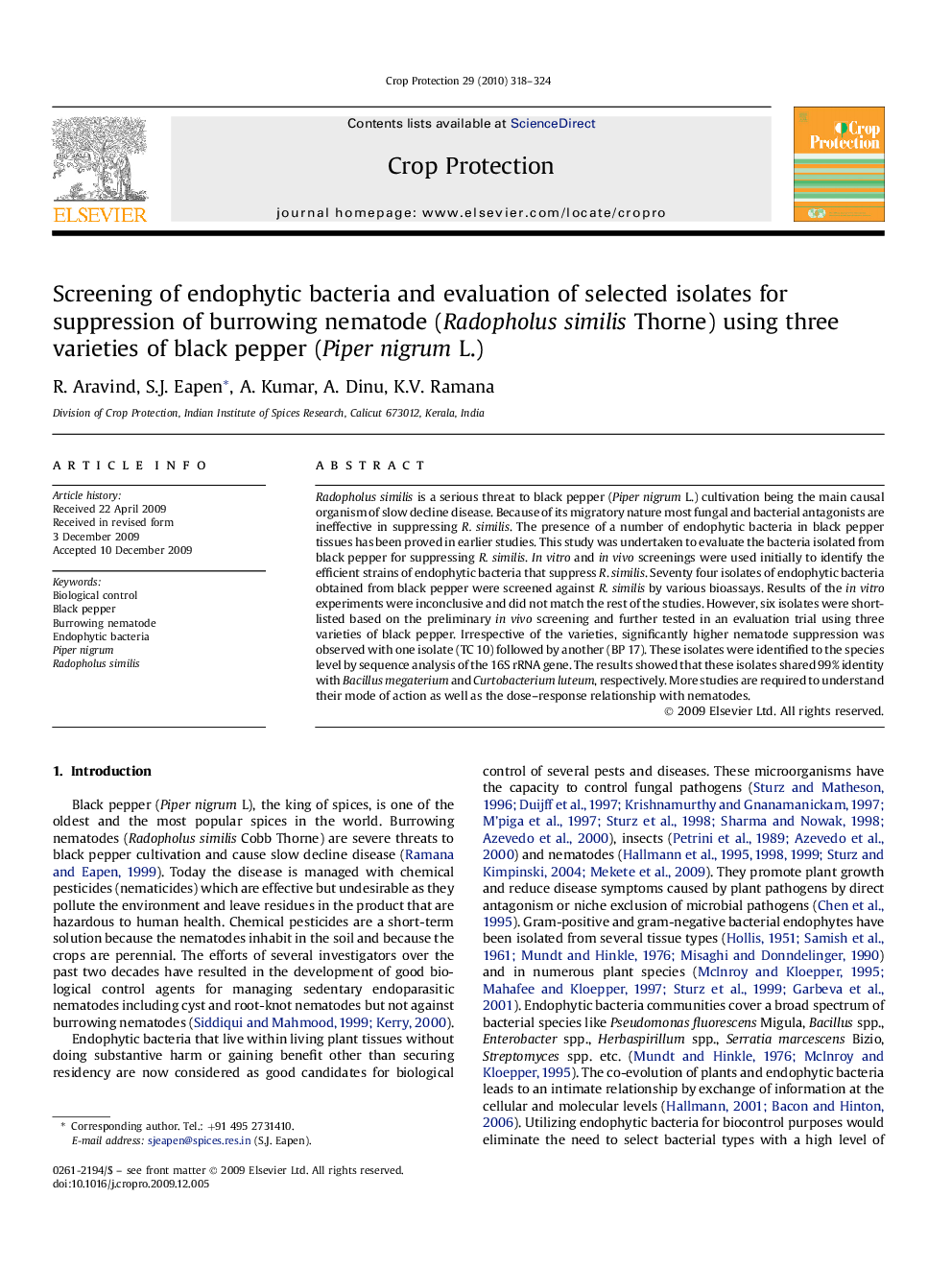| Article ID | Journal | Published Year | Pages | File Type |
|---|---|---|---|---|
| 4507463 | Crop Protection | 2010 | 7 Pages |
Radopholus similis is a serious threat to black pepper (Piper nigrum L.) cultivation being the main causal organism of slow decline disease. Because of its migratory nature most fungal and bacterial antagonists are ineffective in suppressing R. similis. The presence of a number of endophytic bacteria in black pepper tissues has been proved in earlier studies. This study was undertaken to evaluate the bacteria isolated from black pepper for suppressing R. similis. In vitro and in vivo screenings were used initially to identify the efficient strains of endophytic bacteria that suppress R. similis. Seventy four isolates of endophytic bacteria obtained from black pepper were screened against R. similis by various bioassays. Results of the in vitro experiments were inconclusive and did not match the rest of the studies. However, six isolates were short-listed based on the preliminary in vivo screening and further tested in an evaluation trial using three varieties of black pepper. Irrespective of the varieties, significantly higher nematode suppression was observed with one isolate (TC 10) followed by another (BP 17). These isolates were identified to the species level by sequence analysis of the 16S rRNA gene. The results showed that these isolates shared 99% identity with Bacillus megaterium and Curtobacterium luteum, respectively. More studies are required to understand their mode of action as well as the dose–response relationship with nematodes.
